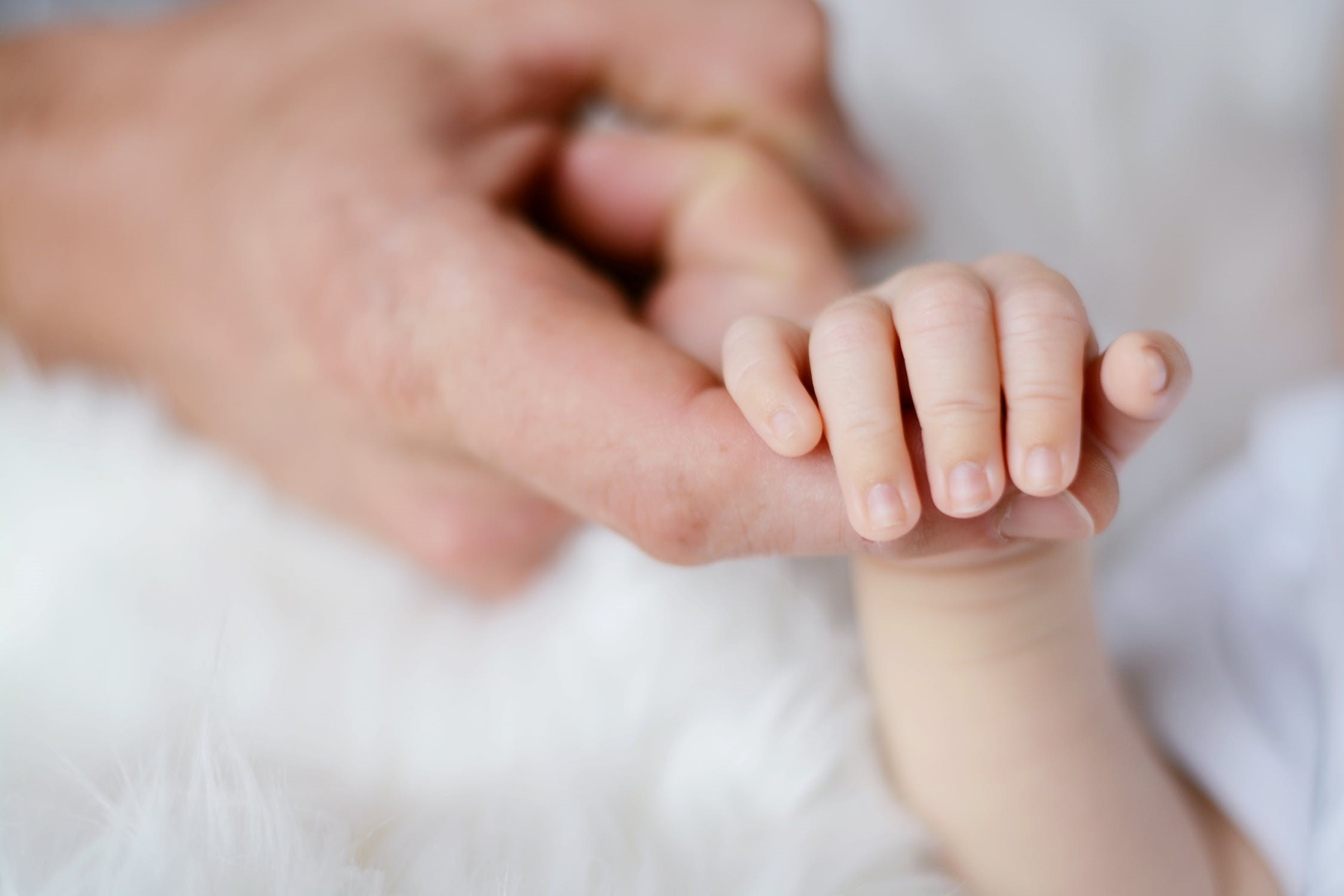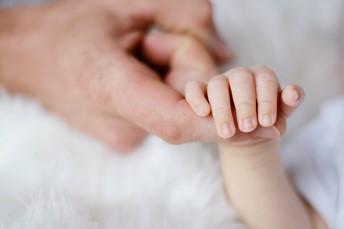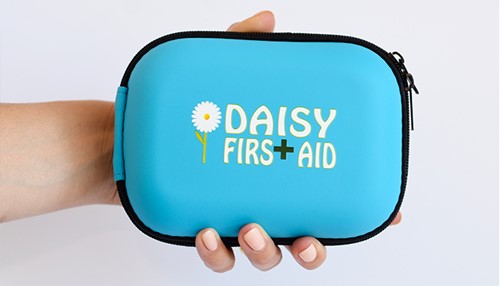Child / Baby First Aid Tips
Written by Feola McCandlish, Daisy First Aid Guildford
Some useful tips from Daisy First Aid below on how to keep your child save at home.
Accidental poisoning
There are all sorts of items lurking around the home that could potentially be harmful to children if they are swallowed. All babies go through a phase of putting everything in their mouth; it’s a sensory thing and completely normal and it’s our job as parents to make sure anything that could be harmful is kept out of their way.

Household medicines are the number 1 reason children are poisoned. Some everyday tablets look like sweets and if our children see us taking them they may try and copy us. It’s important to keep handbags, which may contain painkillers and other dangerous items, well out of reach and move any tablets out of bedside cabinets.
Ensure cleaning products are locked away or kept out of reach. Childproof caps aren’t actually childproof; once a child is 3 or 4 years old they can open them.
Look out for products that include Bitrex, which is a bittering agent that encourages children to spit out the product rather than swallow it.
Button batteries, particularly the larger lithium coin cell batteries, can be very harmful to children. Not only are they a choking hazard but when these batteries come into contact with saliva, they produce a substance called caustic soda which is the same substance that is used to unblock drains. If a child swallows one of these batteries they can cause catastrophic internal bleeding in a matter of hours so it’s vital to act fast and take a child straight to A&E if you suspect they have swallowed one.
Other potential hazards to be aware of are other medicines, alcohol, plants, cosmetics and laundry products.
If a child does swallow something they shouldn’t call 111 for advice if they seem well in themselves. If they are unwell call 999 or take them to A&E. We don’t recommend giving children anything to eat or drink, but if they have swallowed something corrosive small sips of water or milk can be given. Don’t make the child sick; let the doctors remove whatever they have ingested in hospital. It is important to monitor the child’s breathing continuously and if you have the packaging of what’s been ingested take it to hospital with you.
Burns
Since lockdown began doctors have, unfortunately, seen an increase in children being admitted to hospital with burns. A small child’s skin burns really easily as it’s so thin and delicate, and young children might not know to pull away when something is burning them.
A hot cup of tea can still burn a child 15 minutes after it’s been made. Keep them well out of reach and don’t hold hot drinks while you’re holding a baby or child.
Hair straighteners can get as hot as an iron and can still burn 10 minutes after they have been switched off. Keep them in a heatproof pouch well out of reach.
Ensure bathwater is checked before putting a child in by using your elbow. Push hot kettles and pans to the back of the work surface or stove so they are well out of reach.
If a child does accidentally get burnt the steps you follow in the immediate aftermath could make all the difference:
1 – remove clothing or jewellery provided it isn’t stuck to the skin
2 – run the affected area under cool running water for a full 20 minutes; keep the rest of the body warm
3 – cover the affected area in clingfilm – this will help with the pain and will also keep the area clean
4 – seek medical advice
Head injuries
It’s pretty normal for a young child to bang their head from time to time. Once they begin walking and grow to a height that is exactly that of all the corners of the tables in your house the occasional bang to the head is not unexpected.
With head injuries it’s important we monitor the child for at least 24 hours afterwards. They might have a bump, bruise or an indent to the head. A cold compress (or bag of peas wrapped in a tea towel) on the affected area should help reduce any swelling.
It’s normal for a child to get quite upset when they bang their head; it’s also normal for them to recover fairly quickly and carry on behaving normally.
If their condition doesn’t improve, they become unwell or their behaviour changes in the hours or days following a bang to the head then always take them to be seen by a medical professional. If they display any of the following symptoms take them straight to A&E:
- loss of consciousness
- drowsiness when they would normally be awake
- confusion
- multiple episodes of vomiting
- problems understanding or speaking
- problems with coordination
- weakness in one or both arms or legs
- a seizure
- swelling/bruising around the eyes or ears
- worsening headache that won’t go away, despite taking painkillers
- clear fluid or blood coming out of your child’s ears or nose
- new deafness in one or both ears
For more information, please visit www.daisyfirstaid.com
